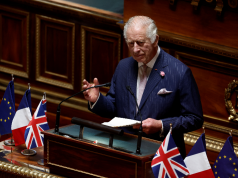
This year’s “Big Bad Wolf Book Sale” will be environment-friendly as the world’s biggest and highly-anticipated traveling book sale announced that it will not provide plastic bags to its patrons.
In a Facebook post, the organizers of the event encouraged the public to bring their own eco-bags in a bid to reduce the usage of plastic bags, as well as to comply with local laws and regulations.
“Plastic bags will not be provided at my Sale to reduce the usage of plastic bags. Bring your own bag—the bigger the better! However, if you need a bag, the Big Bad Wolf Book Sale sells eco bags for PHP20,” the post reads.
The 24-hour, free-admission event will sell over two million books with 50 to 90 percent discounts at the World Trade Center in Pasay City from Feb. 14-24, 2020.
The Big Bad Wolf Book Sale is saying no to plastic bags! And also to comply with local laws and regulations. Plastic…
Posted by Big Bad Wolf Books on Wednesday, February 12, 2020
The book sale will sell around 30,000 titles, with 17,000 of it labeled brand new or have just been added to the catalog.
It also pledged to support the people of Tagaytay who have been affected by the Taal Volcano eruption through its partner, Gawad Kalinga.
This is not the first time that the book sale has initiated eco-friendly efforts. Last year, the organizers also encouraged the public to bring their own eco-bags in a bid to reduce plastic usage.
No to plastics
The “Big Bad Wolf Book Sale” is usually held in Pasay City which has its own ordinance against the use of plastic bags.
City Ordinance No. 4647 (series of 2011) aims to regulate the “use of non-compostable plastic carryout bags” and promote “the use of recyclable paper carryout bags and reusable bags.”
“All stores in the city shall provide or make available to a customer only recyclable paper carryout bags, reusable bags, and compostable plastic bags for carrying out goods or other materials from the point of sale,” part of the ordinance reads.
“Nothing herein prohibits customers from using bags of any type that they bring to the store themselves or from carrying away goods that are not placed in a bag, in lieu of using bags provided by the store,” it adds.
First-time violators of the ordinance will receive a warning while succeeding offenses will cost them a penalty fee starting from P1,000.
The Philippines is frequently listed as one of the countries that strongly contribute to plastic pollution in the ocean.
A study by the Global Alliance for Incinerator Alternatives noted that the country uses more than 17 billion shopping bags every year, among others.
This has prompted officials to be more proactive in their efforts to reduce, if not completely ban, the use of plastic bags and single-use plastic.
Last year, President Rodrigo Duterte said that was he was considering a nationwide ban on the use of plastics.









